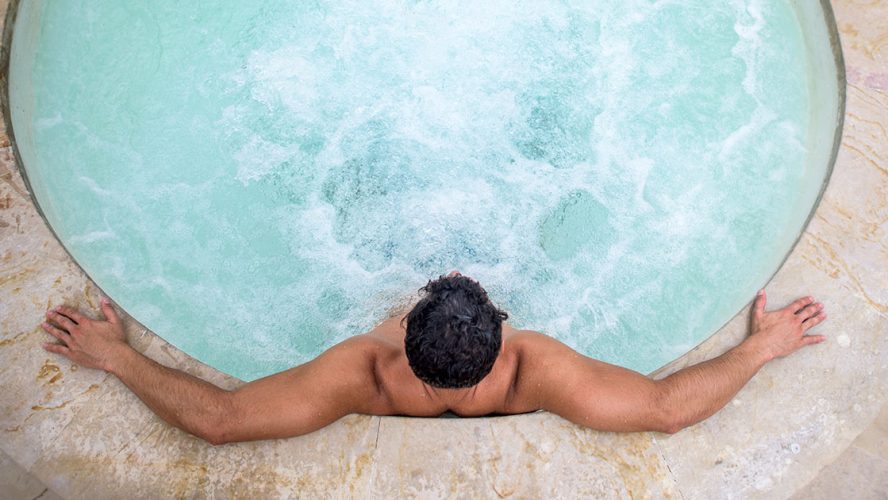The water crises of Cape Town, Sao Paolo, and Chennai in recent years demonstrate the major impact water scarcity can have on communities and businesses globally.
With a quarter of the world’s population already living in “extremely high” water stress areas, and countries with the largest tourism growth forecast to have the highest water stress, hotel companies are at the forefront of current and future water challenges.
An occupied hotel room consumes an average of 1,500 liters of water per day, which can vastly exceed that of local populations’ use in water-scarce destinations, as outlined in the Destination Water Risk Index. Not only are hotels dependent on water for their operations, they also have a responsibility to guests, staff, and local populations to safeguard freshwater access.
How can hotels help?
International Tourism Partnership (ITP) is a non-profit organization that brings together 16 leading hotel companies, representing 25 percent of the hospitality, to drive industry-wide action on key social and environmental issues. Water is a key focus area, and ITP has created a range of free-to-use tools and resources to enable the hospitality industry to reduce the number of people affected by water scarcity through water stewardship.
ITP has outlined six key steps to enable every hotel to build an effective water strategy:
1. Understand your relationship with water
Any successful water stewardship strategy begins with a comprehensive water risk assessment that identifies the source, impact, and dependencies of current and future water use.
A hotel’s impact on local water resources doesn’t only depend on its consumption; high water use in water-rich locations can have minor impact compared to average water use in water-scarce regions. Companies need to analyze their source of freshwater, potential use-conflicts (e.g., wet/dry season), and infrastructure for wastewater treatment.
Hotels can use ITP’s free Hotel Water Measurement Initiative methodology and tool to report their current water usage. This allows for consistent industry benchmarking and will help identify the challenges hotels operating in similar destinations face.
2. Set targets and create a plan of action
A company-wide, long-term strategy should have clear goals and measurable targets that align with global and sector initiatives, such as the United Nations’ Sustainable Development Goals. This should then be broken down into individual targets for each property, based on usage and location.
It is important to prioritize destinations that already face high water stress, while ensuring strategy and targets consider the projected growth of the tourism industry and the hotel company’s development plans.
3. Manage water sustainably in hotel operations
Although a global concern, water management is, at its core, a localized issue, and the methods to improve efficiency will differ from property to property. However, some key actions include:
- Improving water efficiency: Regularly check for leaks in cisterns, taps, and pipes; install low-flow and other water-saving fittings; and optimize water-intensive processes like not washing laundry items under running water.
- Ensuring robust wastewater treatment: Understand how wastewater is treated (local wastewater management companies); ensure treatment is to the correct standard; and install on-site treatment facilities.
- Using alternative sources: Collect rainwater to irrigate hotel grounds; install a saltwater cooling system; and recycle greywater (wastewater from showers or sinks) for flushing toilets.
- Engaging guests and staff: Allow staff to identify water-saving opportunities within their departments; and encourage guests to report leaking facilities, use air conditioning only when in the room, and reuse their towels.
4. Work with suppliers on water
Engaging with suppliers’ water stewardship practices enables the industry to better address its indirect impact on water scarcity. Hotel companies should identify their most water-intensive products and services (e.g., cotton, meat, laundry) and encourage suppliers to support their water strategy through incentives like brand procurement standards, premium pricing, and long-term contracts.
5. Build resilience to extreme events and water shortages
A strategy should include procedures and provisions to respond to extreme weather patterns (e.g., floods, droughts) to protect hotel operations, supply of goods, and local communities.
From improving flood resilience, like moving essential kits above flood lines to efficiently managing water use, hotels can play a key role in protecting local communities and mitigating against future events.
6. Collaborate on sustainable water management
Water is a shared resource, and no matter how sustainably one business manages its water use, it is dependent on other users in the area.
By supporting sustainable water initiatives, sharing data with local water agencies, and collaborating with neighbouring properties, hotels can protect their direct water use and supply of products and services while supporting community-wide change.
Through aligning targets with global goals and implementing robust water policies, the hospitality industry can be a leading voice on water sustainability and demonstrate how businesses can ensure long-term water security for the communities in which they operate.
International Tourism Partnership (ITP), [email protected]

